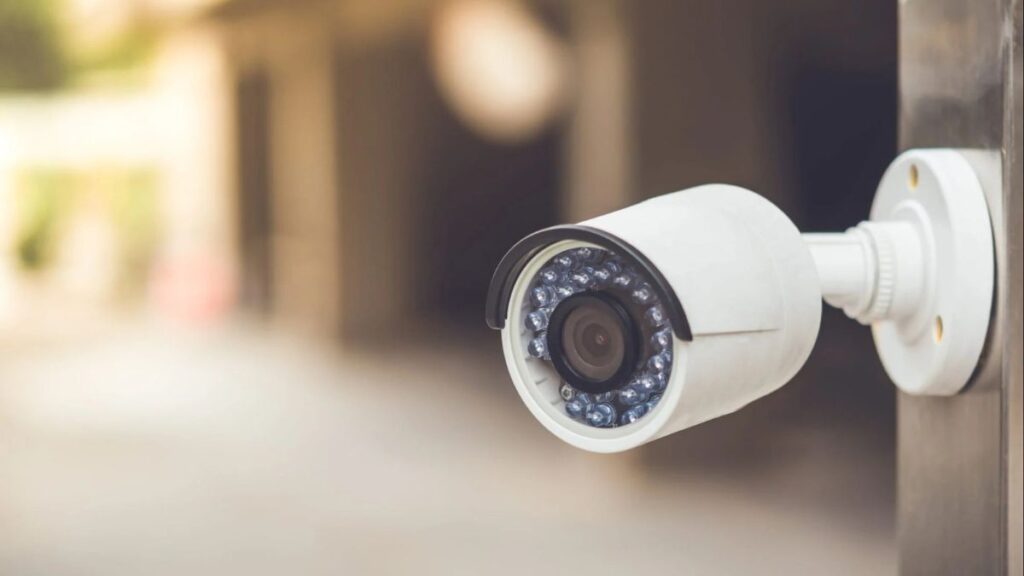Key Takeaways:
- Understand how security cameras deter crime and enhance safety.
- Learn about the operational and financial benefits of surveillance systems.
- Discover how cameras can improve customer experiences and compliance.
Deterrence of Criminal Activities
The deterring effect of security camera installation on criminal activity is among its most obvious and immediate advantages. Security cameras constantly remind malicious acts and unsanctioned access that they will not go unnoticed. This isn’t mere speculation—numerous studies and real-world statistics indicate a significant drop in crime rates in areas under surveillance. By serving as a clear deterrent to potential criminals, security cameras successfully lower the number of theft, vandalism, and other criminal incidents.
This psychological impact is crucial for businesses that maintain a safe, secure environment. By investing in a comprehensive commercial security camera installation service, businesses can strategically place cameras to monitor high-risk and less visible areas of their premises. This proactive stance protects physical and intellectual property and instills a sense of security among employees and clients, fostering an environment of trust and peace.
Enhanced Operational Efficiency
While surveillance systems’ primary role is to provide security, their utility often extends into enhancing operational efficiency. In a business context, these systems offer an unparalleled opportunity to observe and fine-tune daily operations. By analyzing footage, managers can accurately understand workflow efficiency, identify process bottlenecks, and gauge employee productivity without being intrusive. This ability to monitor operations discreetly ensures that processes run smoothly and can highlight areas that need improvement without constant physical oversight.
Additionally, modern surveillance systems integrate features like remote monitoring through mobile devices and cloud storage solutions, allowing business leaders to oversee operations virtually anywhere. This capability is invaluable for enterprises with multiple locations or decision-makers who travel frequently. Such technologies make it easier to conduct virtual site visits and ensure standard operating procedures are followed across all branches. Moreover, with AI-powered analytics, systems can offer alerts for unusual patterns or potential inefficiencies, enabling managers to act rapidly and maintain high productivity levels.
Cost Savings and Financial Benefits
The financial implications of installing security cameras are often underestimated. While the upfront costs of purchasing and installing a state-of-the-art security system seem significant, the return on investment can be substantial over time. Firstly, businesses can significantly reduce direct losses by curbing theft, property damage, and vandalism. Moreover, a robust surveillance system can deter opportunistic wrongdoing and thus lower the frequency of claims made to insurance companies, potentially leading to lower premiums.
Beyond these direct savings, the analytical capabilities of modern security systems can unearth additional revenue-generating opportunities. For instance, by studying customer behavior patterns captured on video, businesses can optimize store layouts and improve product placements, ultimately enhancing sales. Understanding peak hours and customer flow can also inform staffing decisions, ensuring customer service levels remain high without unnecessary labor costs. Integrating these insights into business strategies underscores the broader financial benefits of surveillance solutions.
Improved Customer and Employee Safety
Protecting the safety of clients and staff is a top priority for any business, and security cameras are essential to this process. The simple knowledge that a business premises is under video surveillance provides peace of mind to all who enter, fostering a sense of safety and security. This reassurance is particularly significant in sectors known for high customer volumes, such as retail and hospitality, where the safety of patrons is paramount.
In addition to acting as a preventive tool, recorded footage can also be instrumental in post-incident analyses. Should an unfortunate event occur, having a clear video record helps in swiftly resolving disputes, understanding the events leading up to an incident, and providing vital evidence to law enforcement if necessary. This ability to decisively address and learn from incidents strengthens trust among clientele and boosts employee morale, knowing they are protected and supported in their workplace. The resultant environment is conducive to building longstanding business relationships and promoting a positive brand image.
Compliance and Risk Management
Adhering to surveillance and data protection regulations is a critical aspect of modern business practices, and security cameras can significantly aid in maintaining compliance. Regulations like the General Data Protection Regulation (GDPR) and others set strict standards for collecting, using, and storing video data. Failing to comply with these regulations can result in severe penalties and reputational harm. Businesses can protect themselves from legal liabilities by implementing a surveillance system that respects data protection laws and follows best privacy practices.
Beyond compliance, savvy risk management includes utilizing recorded footage to reduce liability risks, such as verifying event sequences during accident investigations or ensuring fair employee practices across the board. By maintaining secure and compliant records, businesses can safeguard against false claims and potential litigation. Moreover, quickly and efficiently retrieving relevant footage demonstrates a company’s commitment to transparency and accountability, which is increasingly valued by today’s consumers and regulatory bodies alike.
Conclusion
Implementing a security camera system is a strategic investment beyond mere theft prevention—it augments business operations, enhances organizational safety, and promotes ethical compliance. As businesses continue to adapt to a rapidly evolving world, the role of surveillance systems extends into areas of greater strategic importance, offering comprehensive insights, operational efficiencies, and enhanced user experiences. In the face of evolving threats and opportunities, employing the latest surveillance technologies allows businesses to remain agile, competitive, and prepared.
Embracing modern surveillance infrastructures positions businesses to harness full security potential, driving long-term success and stability in an ever-competitive landscape. Staying informed on security camera trends ensures that businesses are equipped to protect their assets and enrich their operational strategies for a future-oriented approach.



